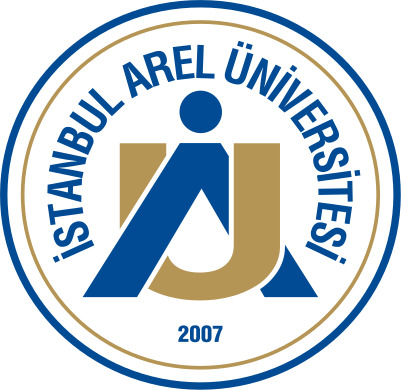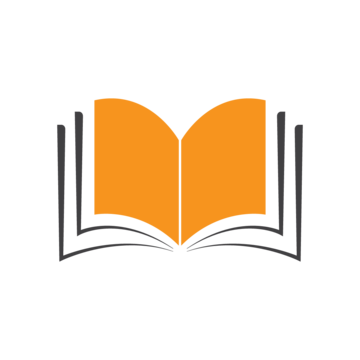Child Development
Overview
<!-- wp:paragraph --> <p><strong>Program Description</strong><br><strong>Child Development at Istanbul Arel University: Nurturing the Growth of Tomorrow’s Leaders</strong></p> <!-- /wp:paragraph --> <!-- wp:paragraph --> <p>The Child Development program at Istanbul Arel University is a comprehensive course designed to provide students with a deep understanding of the physical, cognitive, emotional, and social development of children from infancy to adolescence. The program emphasizes the importance of early childhood development and prepares students to work with children in a variety of settings, including schools, child care centers, and community organizations. Combining theoretical knowledge with practical experience, this program equips students with the skills necessary to support children’s growth, well-being, and learning. With a focus on child-centered practices, developmental theories, and intervention strategies, the program ensures that students are well-prepared to contribute to the positive development of children and families.</p> <!-- /wp:paragraph --> <!-- wp:paragraph --> <p><strong>Program Mission and Vision</strong><br>The mission of the Child Development program at Istanbul Arel University is to train compassionate, knowledgeable, and skilled professionals who can foster the growth and development of children in diverse settings. The program seeks to develop students’ understanding of developmental milestones, effective teaching strategies, and family-centered practices, while promoting critical thinking and a commitment to lifelong learning. Its vision is to create a generation of child development experts who will contribute to the well-being of children, advocate for their rights, and support families in nurturing healthy, well-rounded individuals.</p> <!-- /wp:paragraph --> <!-- wp:paragraph --> <p><strong>Curriculum Structure</strong><br>The Child Development program offers a dynamic education that integrates theory, research, and hands-on experience to support students in understanding and addressing the needs of children. Key areas of the curriculum include:</p> <!-- /wp:paragraph --> <!-- wp:paragraph --> <p><strong>Introduction to Child Development</strong>: This foundational course introduces students to the field of child development, covering the stages of physical, cognitive, emotional, and social growth from infancy to adolescence. Students explore key developmental theories and the factors influencing a child’s development.</p> <!-- /wp:paragraph --> <!-- wp:paragraph --> <p><strong>Developmental Psychology</strong>: Students delve deeper into the psychological aspects of child development, studying the cognitive, emotional, and behavioral processes that shape a child’s identity. The course covers topics such as attachment, temperament, learning styles, and emotional regulation.</p> <!-- /wp:paragraph --> <!-- wp:paragraph --> <p><strong>Early Childhood Education</strong>: This course focuses on the principles and practices of early childhood education, emphasizing the importance of play-based learning, creativity, and social development. Students learn how to design effective curricula and create nurturing environments for young children.</p> <!-- /wp:paragraph --> <!-- wp:paragraph --> <p><strong>Health, Nutrition, and Safety for Children</strong>: Students study the essential components of health, nutrition, and safety for children. Topics include age-appropriate nutrition, immunizations, common childhood illnesses, injury prevention, and how to create safe environments that promote children's well-being.</p> <!-- /wp:paragraph --> <!-- wp:paragraph --> <p><strong>Language and Literacy Development</strong>: This course explores how children acquire language and develop literacy skills from infancy through early childhood. Students learn about language development theories, the role of caregivers and teachers in supporting language acquisition, and strategies for enhancing early literacy.</p> <!-- /wp:paragraph --> <!-- wp:paragraph --> <p><strong>Child Observation and Assessment</strong>: Students learn the methods and tools used for observing and assessing children’s development. They gain practical experience in documenting developmental progress, identifying individual needs, and using assessments to inform planning and interventions.</p> <!-- /wp:paragraph --> <!-- wp:paragraph --> <p><strong>Inclusive Practices in Child Development</strong>: This course focuses on inclusive education and the strategies used to support children with diverse abilities. Students learn about the importance of adapting teaching and care practices to accommodate children with disabilities, learning challenges, and cultural differences.</p> <!-- /wp:paragraph --> <!-- wp:paragraph --> <p><strong>Behavioral and Emotional Development</strong>: Understanding emotional and behavioral development is crucial for working with children. This course examines the emotional milestones of children, common behavioral challenges, and strategies for supporting children’s emotional well-being and social skills.</p> <!-- /wp:paragraph --> <!-- wp:paragraph --> <p><strong>Family Dynamics and Parent-Child Relationships</strong>: This course explores the role of families in child development, including the dynamics of parent-child relationships, the influence of family structures, and the impact of cultural and socioeconomic factors on child-rearing practices.</p> <!-- /wp:paragraph --> <!-- wp:paragraph --> <p><strong>Research Methods in Child Development</strong>: Students are introduced to research methodologies used in the field of child development. They learn how to design research studies, collect data, and analyze findings related to child development theories and practices.</p> <!-- /wp:paragraph --> <!-- wp:paragraph --> <p><strong>Ethics and Advocacy in Child Development</strong>: This course emphasizes the ethical responsibilities of child development professionals, focusing on issues such as child protection, ethical decision-making, and advocacy for children’s rights and well-being.</p> <!-- /wp:paragraph --> <!-- wp:paragraph --> <p><strong>Capstone Project and Internship</strong>: The program culminates in a capstone project and internship, where students apply their knowledge and skills in real-world settings. Students work in schools, child care centers, and community organizations, providing support and interventions under the guidance of experienced professionals.</p> <!-- /wp:paragraph --> <!-- wp:paragraph --> <p><strong>State-of-the-Art Facilities and Labs</strong><br>Istanbul Arel University provides students with access to modern child development laboratories, classrooms, and play therapy rooms that simulate real-world environments. These facilities allow students to engage in role-play, case studies, and hands-on activities that enhance their understanding of child development and education practices.</p> <!-- /wp:paragraph --> <!-- wp:paragraph --> <p><strong>Emphasis on Practical Experience and Interdisciplinary Collaboration</strong><br>The Child Development program emphasizes the importance of practical experience in preparing students for their future careers. Through internships, case studies, and collaborative projects, students work alongside educators, psychologists, social workers, and other professionals to support children’s development in a variety of settings. This hands-on learning helps students build their professional skills and develop effective, evidence-based practices.</p> <!-- /wp:paragraph --> <!-- wp:paragraph --> <p><strong>Career Opportunities</strong><br>Graduates of Istanbul Arel University’s Child Development program are well-prepared for a range of careers in child development and education. Career options include working as child development specialists, early childhood educators, school counselors, child psychologists, social workers, or child advocacy specialists. Graduates can also pursue further education in advanced degrees in education, psychology, or social work.</p> <!-- /wp:paragraph --> <!-- wp:paragraph --> <p><strong>Shaping the Future of Child Development</strong><br>Istanbul Arel University’s Child Development program empowers students to become effective and compassionate professionals who can support children’s growth and development in diverse contexts. By providing a strong foundation in developmental theory, child-centered practices, and ethical care, the program prepares graduates to make a meaningful difference in the lives of children and families. Students leave the program equipped to contribute to positive developmental outcomes and advocate for the well-being of children in a variety of settings.</p> <!-- /wp:paragraph -->
Program Description
The Child Development program at İstanbul Arel University offers a comprehensive curriculum designed to prepare students for successful careers in this dynamic field. The program combines theoretical knowledge with practical skills, ensuring graduates are ready for the challenges of the industry.
The program is taught by experienced faculty members who are leaders in their respective fields, providing students with insights into current industry practices and future trends.
Curriculum Highlights
- Advanced Research Methods: Learn cutting-edge research techniques and methodologies.
- Industry Analysis: Explore current industry trends and develop analytical skills.
- Leadership and Management: Develop essential leadership skills for managing teams and projects.
- Innovation and Entrepreneurship: Cultivate creative thinking and entrepreneurial mindset.
- Digital Transformation: Understand how technology is reshaping industries and businesses.
- Sustainable Development: Explore environmentally sustainable practices and their implementation.
- Global Markets: Study international market dynamics and global business operations.
- Technology Integration: Learn to leverage technology for improved business outcomes.
Requirements:
- Bachelor's degree (for Master's programs) or equivalent qualifications.
- Proven English language proficiency (IELTS 6.5+ or equivalent).
- Complete transcripts from previous education.
- A compelling letter of motivation explaining your interest in the program.
- Two letters of recommendation from academic or professional references.
- Valid passport with appropriate visa status or eligibility.
Benefits:
- World-class faculty with extensive industry experience.
- Modern campus facilities and cutting-edge learning environments.
- Strong industry partnerships providing networking opportunities.
- Internship opportunities with leading companies in the field.
- Comprehensive career services including job placement assistance.
- Access to a global alumni network for lifelong professional connections.
Begin your educational journey today.
Apply now and take the first step towards your future.






